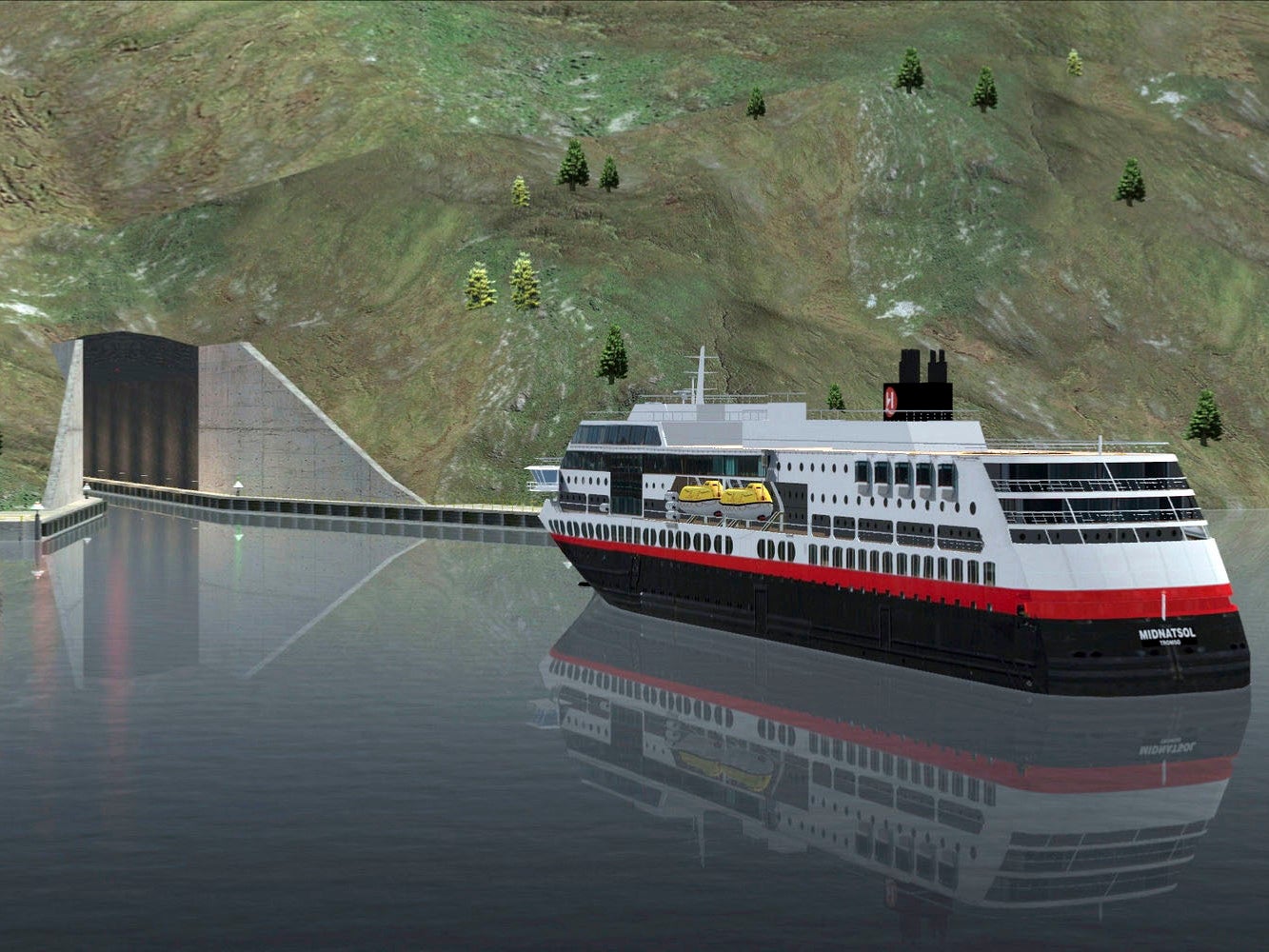Norway to build world’s first shipping tunnel
Passageway burrowing through rocky peninsula allows boats to avoid treacherous stretch of seas
Your support helps us to tell the story
From reproductive rights to climate change to Big Tech, The Independent is on the ground when the story is developing. Whether it's investigating the financials of Elon Musk's pro-Trump PAC or producing our latest documentary, 'The A Word', which shines a light on the American women fighting for reproductive rights, we know how important it is to parse out the facts from the messaging.
At such a critical moment in US history, we need reporters on the ground. Your donation allows us to keep sending journalists to speak to both sides of the story.
The Independent is trusted by Americans across the entire political spectrum. And unlike many other quality news outlets, we choose not to lock Americans out of our reporting and analysis with paywalls. We believe quality journalism should be available to everyone, paid for by those who can afford it.
Your support makes all the difference.Norway plans to build the world's first tunnel for ships, a 1,700-metre (5,610-feet) passageway burrowed through a piece of rocky peninsula that will allow vessels to avoid a treacherous part of sea.
Construction of the Stad Ship Tunnel, which would be able to accommodate cruise and freight ships weighing up to 16,000 tonnes, is expected to open in 2023.
It will be 36 metres (118 feet) wide and 49 metres (162 feet) tall and is estimated to cost at least 2.7 billion kroner ($314 million).
Norwegian Transportation Minister Ketil Solvik-Olsen had said Wednesday that sea currents and underwater topography in this part of the country's southwestern coast “result in particularly complex wave conditions.”
“We are pleased that the ship tunnel now becomes reality,” Solvik-Olsen said, adding that travel time between Norwegian cities and towns in the area would be reduced. Over the years, plans for a ship tunnel in Stad had been floated but now a project with a financing is ready, he said.

The tunnel is expected to be located at the narrowest point of the Stadlandet peninsula and the weather has for decades been considered an obstacle for shipping.
Project manager Terje Andreassen said engineers will have to blast out an estimated eight million tonnes of rock to build the tunnel. Construction is expected to start at the earliest in 2019.
Under the plan, passenger traffic will be given priority but leisure boats and other vessels can also use the tunnel. It will be free of charge for vessels measuring less than 70 metres (230 feet), and vessels longer than that would have to be led.
Vessels sailing through the tunnel likely will get slot times from a traffic centre — like planes at an airport — to avoid congestion.
Associated Press

Join our commenting forum
Join thought-provoking conversations, follow other Independent readers and see their replies
Comments